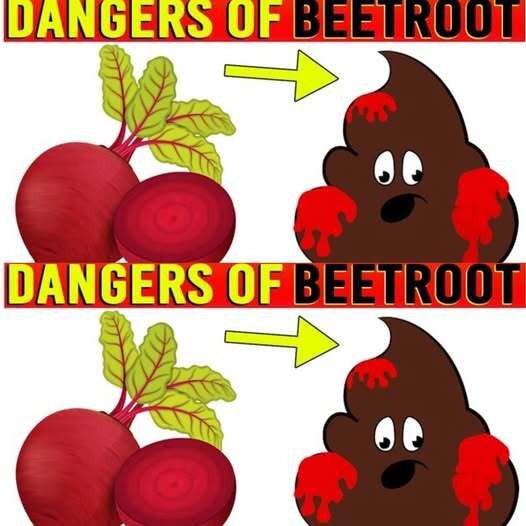Beetroot is often touted as a superfood, packed with essential nutrients like fiber, folate, vitamin C, and antioxidants. It’s great for improving blood flow, supporting liver function, and boosting energy levels. However, despite its health benefits, consuming beetroot in large quantities may lead to some unexpected side effects. Here are seven potential side effects of beetroot that you should be aware of before adding it to your daily diet:
1. May Cause Beeturia (Pink Urine)
One of the most commonly known side effects of eating beetroot is beeturia, which is the red or pink coloring of urine. While it is harmless, it can be alarming if you are not aware that beetroot is the cause. This happens because the pigment betalain, found in beets, may not be fully broken down in the digestive tract, leading to the discoloration of urine.
2. Low Blood Pressure
Beetroot is known to naturally lower blood pressure due to its high nitrate content, which helps relax and dilate blood vessels. While this is beneficial for people with high blood pressure, individuals already suffering from low blood pressure should be cautious when consuming beetroot. It may cause dizziness, fainting, or lightheadedness due to excessive lowering of blood pressure.
**3. Stomach Discomfort & Gas
Please Head On Over To Next Page Or Open button (>) and don’t forget to SHARE with your Facebook friends.



Yo Make również polubił
Cream Cheese and Bacon Stuffed Doritos Chicken: A Crispy, Cheesy Delight
Crispy Potatoes Without Frying: A Family Favorite That’s Tastier Than Meat!
Classic Black Forest Cherry Cake: A Masterpiece of German Pâtisserie
Hamburger Rice Casserole: A Cozy One-Pot Meal